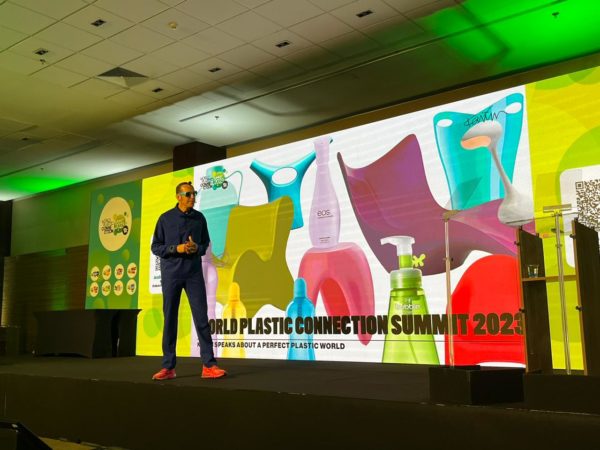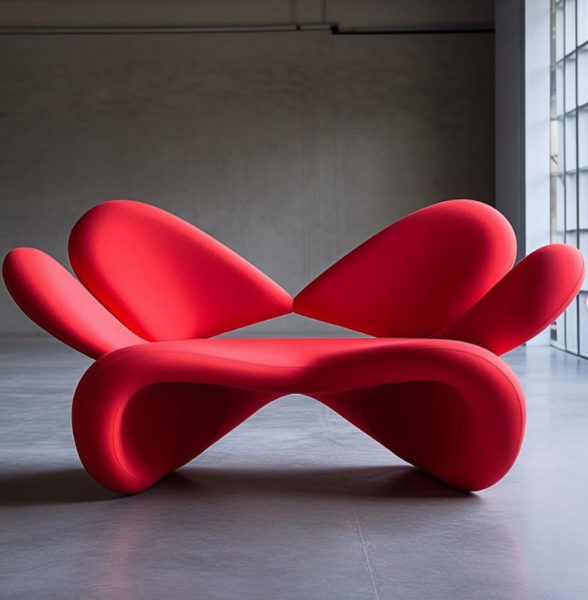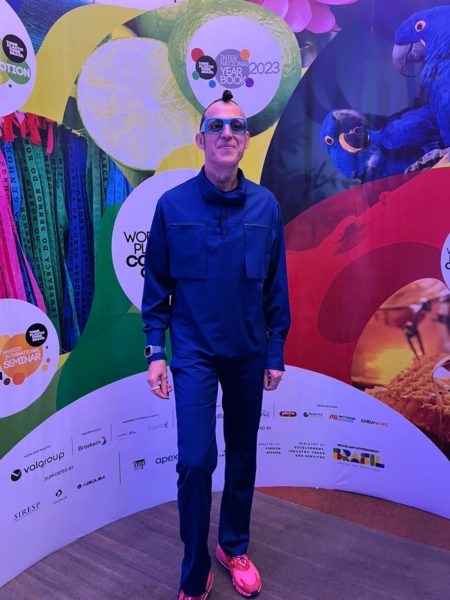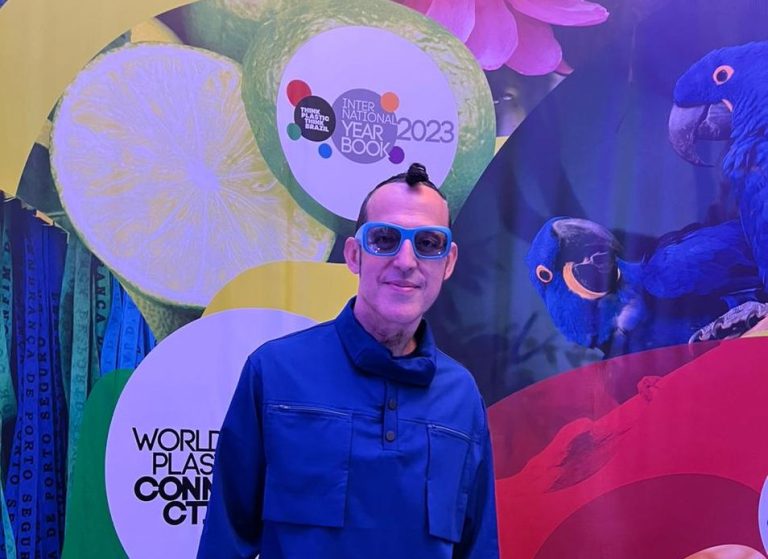Barueri – About to turn 63, Egyptian Karim Rashid (pictured above), one of the most important industrial designers of his generation, was a guest at the 2023 World Plastic Connection Summit, which took place in Barueri in the São Paulo metropolitan area. The artist was the last guest to speak at the event this Tuesday (22). He recalled noteworthy moments in his career and talked about the importance of using plastic in creating his pieces.
“I crafted many products with plastic, from small to large scale. I’ve worked with packaging and industrial design, then went through furniture design, wallpapers, floors, and architecture. In all this time, the most important thing for me has always been knowing the suitable material to use in my pieces, which would last longer. I always thought: What can I do to make the product last longer?” asked Rashid.

The Egyptian said concern for the environment and reuse of materials have been with him since childhood. Born in Cairo, he attended college and lived for many years in Canada, a country that is very strict about recycling.
“I was raised to be concerned about the environment. During my degree, I designed products and thought about their entire lifecycle from beginning to end. This care ended up being part of my life, of who I am, of my nature,” says Rashid.
Despite the importance of the topic, according to Rashid, recycling stopped being something interesting for a few years, especially in the United States, the country where he currently lives. “No one else talked about it for a while, but now we see it being discussed everywhere; green education is back in the conversation.”

In addition to serving as inputs in creations, recycled items are used whenever the artist is inspired to create. “When you sit down and start designing, first of all, you have to think about what you are responsible for doing on that project. Within this thought of responsibility and care for the environment, you must consider which materials you will choose, which production method, etc.”
Rashid said his current style of work, in addition to being influenced by the environment where he was raised, was also affected by his father, who was a painter. “I was raised at a time when plastic in design was at its peak. My father was an artist and didn’t earn much, so we were a poor family. Even without good financial conditions, we always had beautiful and democratic products, which I was obsessed with,” he recalls.
“Because of my father, I always thought good design was not just for the elite or the rich but for everyone. I realized over time the way to make democratic products was by using plastics as a raw material. That was the only way.”
Career achievements
During the lecture, Rashid recalled his main professional achievements over his 40-year career. In the 1990s, he dedicated himself to the cosmetics area. Unlike what was done then, the Egyptian created products with multiple functions, including a bottle whose lid could be used as a cup.
“I like to create products made of polymer because when I work with this material, I can play with it. Twenty years ago, together with Coca-Cola, I made a different bottle. When the seal on the lid was broken, it would release a lemon scent. The idea was for the consumer to smell the fruit before drinking the soda.”

Another item that the Egyptian highlighted during the lecture was a chair produced in 1997, which is still sold today. He decided to make several holes in the creation to use less plastic. “As we know, what uses less plastic produces less carbon emissions in the atmosphere and uses less energy. So I came up with the idea of making holes in the chair,” said Rashid.
In the end, in addition to making a valuable product, the designer managed to make a flexible chair that made the user’s blood circulate at a reasonable rate, even when sitting down.
Evaluating his career path, Rashid said he considers himself a good designer because, in addition to making functional products, he also creates items that generate a connection with consumers. Just as in his childhood, when he connected with the objects in his home, the artist currently provides the same experience to other people.
In four decades, the artist, who has over 4,000 projects in production and more than 300 awards, has made durable, beautiful, original products that offer real solutions and use less raw inputs.
Rashid has worked in over 40 countries and said he is available to partner with Brazilian companies. “Brazil is a powerful economy, full of production technology and talented and educated people. Despite this, Brazilian brands are still not very well known worldwide, so they need to improve their approaches.”
The 2023 World Plastic Connection Summit debates occurred this Monday (21) and Tuesday (22). The schedule continues with other activities, such as B2Bs. The event is an initiative of the Think Plastic Brazil program, the National Institute of Plastics (INP), and the Brazilian Trade and Investment Promotion Agency (ApexBrasil). The Arab Brazilian Chamber of Commerce (ABCC) was one of the event’s supporters.
Special report by Rebecca Vettore for ANBA.
Translated by Elúsio Brasileiro




